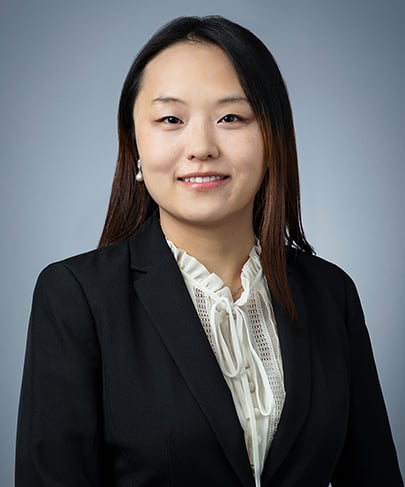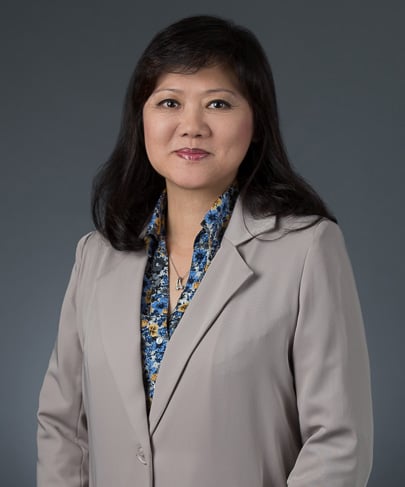The Cost of a Trade War: Reflections from China and EVs Caught in the Cross-hairs 一 场贸易战的代价: 中国之行和电动汽车陷入的困境的一些反思
- Heusel, Mark Wang, Hezi Yan, Lianne (Lingyan).
- Industry Alerts
Click “Subscribe Now” to get attorney insights on the latest developments in a range of services and industries.
As I prepared to leave for the 2024 Chongqing Auto Summit, I was filled with both excitement and a bit of trepidation. Chongqing is a beautiful city in South-Central China tucked into the mountains and inhabited by over 30 million residents. It is known for its Hot Pot, home to the Ford joint venture with Changan, and many leading Chinese automotive companies. It has been a little more than 5 years since I attended (in person) an automotive conference in China where I had a featured speaking opportunity, and frankly I did not know what to expect. The agenda for the Summit was provoking: The topics were engaging and focused on both business considerations and technology development and the list of speakers was impressive. Nonetheless, the program had a distinctively Asian-based theme. I had the benefit of, and the isolation in, being invited to speak on the U.S. perspective, including trade policies, the U.S. initiative to electrify, and what it meant for U.S.-China relations. The last time I covered the importance of U.S. and China relations in the auto industry, the world had not gone through COVID, former President Trump had only tweeted about tariffs on Chinese goods and, but for Tesla, the West had not discovered its EV ambitions. In those days, the U.S. and China were celebrating collaboration, joint opportunities and the future. Blue and Red states were actively seeking Chinese investment, and N.A. OEMs were salivating over China’s growing domestic consumer market.
在为参加2024重庆汽车峰会做准备时,我心中充满了期待和一些忐忑。重庆是中国中南部的一座美丽城市,坐落在群山之间,拥有超过3000万居民。它以火锅闻名,是福特与长安合资的所在地,也是许多中国领先汽车公司的总部。距离我上次线下参加中国的汽车论坛会议已经过去了五年多,而我对即将发生的事情并不完全了解。峰会的议程引人深思:峰会议题既涉及商业考量又关注技术发展,演讲嘉宾名单也令人印象深刻。然而,整个峰会具有鲜明的亚洲主题。我有幸被邀请就美国的观点发表演讲,包括贸易政策、美国推动电动化的倡议及其对美中关系的意义。上次我讨论美中关系在汽车行业合作重要性时,世界还未经历过疫情,前总统特朗普只是在推特上提到对中国商品的关税,除了特斯拉,西方世界尚未发现其推动电动汽车发展的雄心。那时,美中两国正在庆祝合作、共同机遇和未来。蓝州和红州都积极寻求中国投资,北美汽车制造商则对中国日益增长的国内消费市场垂涎三尺。
Five years on and the world is a very different place. My trepidation for traveling, largely fueled by a constant barrage in the media around deteriorating relations between the U.S. and China, the ramping up of trade sanctions, and the dire travel warnings issued by the U.S. State Department added to this adventure. I have travelled to China many times over the years, and even as recently as May, but this trip felt different. I was headed into the eye of the storm; the Chinese auto industry of late has been maligned for all types of wrongfulness. Whether it is allegations of technology theft, market distortions, forced labor accusations, anti-dumping, or simply fears of unloading their overcapacity of EVs on western shores, the last few years have dramatically changed the U.S.’s perspective on China and, what was once, its nascent auto industry. GM’s image in China had waned and even Tesla was now playing second fiddle to BYD (Bring Your Dreams).
五年过去了,世界已经大不相同了。我对此次中国之行的忐忑,很大程度上是由于媒体不断报道中美关系恶化、贸易制裁升级以及美国国务院发布的旅行警告,这些都加剧了我对这次旅行的担忧。多年来,我曾多次前往中国,最近一次是在今年五月,但这次旅行感觉不同。我正走向风暴的中心;中国汽车业最近因各种不同寻常行为而受到指责。无论是技术盗窃指控、市场扭曲、强迫劳动指控、反倾销,还是仅仅担心将电动汽车的过剩产能转移到西方市场,过去几年极大地改变了美国对中国以及曾经新兴的汽车业的看法。通用汽车在中国的形象已经衰落,甚至特斯拉现在也屈居于比亚迪 (Bring Your Dreams 成就梦想) 之下。
These realities were not lost on the attendees of the Chongqing Summit. While the intensifying U.S. and China relations were not palpable, it was obvious that the Chinese domestic auto industry seems resigned to largely side-step the U.S. market for the foreseeable future. There was a time, not so long ago, that representatives like myself were the stars of the program when it came to China outbound foreign direct investment and the U.S. market. In those days, our tool belts were full of opportunities for growth in the U.S. and Chinese suppliers, in particular, were interested in “The [North American] Show.” Today, the U.S. market is seen as less stable, filled with minefields and enemies are at the gate. No longer is the U.S. seen as the bastion of prosperity and stability for Chinese automotive companies. Instead, the Chinese OEMs are focused on other places in the world, including Southeast Asia, Central Europe, Africa, South and Central America. And, suppliers remain wary of changing U.S. policies and the acrimony that typifies our political rhetoric towards China. The U.S. cadence towards protectionism, isolationism and growing nationalism has encouraged the once unfathomable decoupling agenda espoused by some. Times have changed so dramatically that the U.S.’s recent increase on tariffs (even tariffs of 100% on Chinese EVs) is only met with a wilted smile by the attendees at the Summit.
重庆峰会的与会者们都意识到了这些现实。虽然中美关系的紧张程度并不明显,但明显的是,中国国内汽车行业似乎已经决定在可预见的未来避开美国市场。曾几何时,在谈到中国对外直接投资和美国市场时,像我这样的代表是峰会上的明星。那时,我们的“工具背带”上充满了在美国发展的机会,中国供应商尤其对“北美汽车展”感兴趣。如今,美国市场被认为不那么稳定,到处都是雷区,“敌人”就在门口。美国不再被视为中国汽车公司繁荣和稳定的堡垒。相反,中国汽车制造商将注意力集中在世界其他地方,包括东南亚、中欧、非洲、南美洲和中美洲。此外,中国供应商仍对美国政策的变化以及美国对中国的政治言论中的尖锐批评保持警惕。美国倾向于保护主义、孤立主义和日益增长的民族主义的风向,鼓励了一些人支持一度让人难以理解的脱钩议程。时代发生了翻天覆地的变化,以至于美国最近提高关税(甚至对中国电动汽车征收 100% 的关税)只会让峰会与会者们露出苦笑。
China’s EV industry clearly intends to push on with its own transition and its outbound objectives, but rather than focusing on the U.S., it will do so in places where Chinese investments have already dramatically shifted geopolitics. The transition of the Chinese auto industry, particularly in terms of its “NEVs” (our BEVs) has been nothing but remarkable. Some might argue that this could only occur with substantial government subsidies, but insiders to the industry understand this transformation has been decades in the making. Whatever the reason, China doesn’t intend to give up on EVs and for China it is not a political debate, as it is in the U.S. today.
中国的电动汽车行业显然打算推进自身的转型和对外目标,但与其专注于美国,它将在中国投资已经极大改变地缘政治格局的地方进行。中国汽车工业的转型,特别是在“新能源汽车” (在美国通常称纯电动汽车) 方面,一直是非常引人注目的。有些人可能会说,这只有在政府提供大量补贴的情况下才能实现,但业内人士明白,这种转变已经酝酿了几十年。不管是什么原因,中国都不打算放弃电动汽车,对中国来说,这不是一场政治辩论,就像今天的美国一样。
This is not to say, however, that everything in the Chinese EV industry is sunshine and rainbows – it too is struggling with price wars, extreme competition, upstarts that won’t survive, legacy brands that are slower to evolve, and yes, tariffs in the U.S. and now countervailing duties from the E.U. Nonetheless, it was clear that Chinese automotive leaders in attendance at the Chongqing Summit were focused on addressing these challenges and moving forward with newer and better technologies and new ways of doing business. The focus was on what the Chinese call, “long termism” – mutual cooperation that ensured the future success of the EV industry for Chinese brands. The specter of tariffs, for the leaders of the OEMs, seemed to only re-enforce the fact that the Chinese auto industry was on the right path towards beating its foreign competition. But, Chinese automakers are not doing this alone. In fact, I was surprised to see the number of discussions around joint venturing and business collaborations ongoing throughout all of East Asia. At times, it seemed the only empty chair was that not occupied by the U.S.
然而这并不是说中国电动汽车行业一切都是阳光明媚的——它也在与价格战、激烈竞争、无法生存的新兴企业、发展较慢的传统品牌这些困难作斗争,当然还有美国的关税和欧盟现在的反补贴税。尽管如此,很明显,出席重庆峰会的中国汽车业领导人专注于应对这些挑战,并采用更新、更好的技术和新的经营方式向前迈进。重点是中国人所说的“长期主义”—— 即相互合作,以确保中国品牌在电动汽车行业取得未来的成功。对于汽车制造商的领导者来说,关税的阴影似乎只是再次证明了中国汽车业正走在击败外国竞争对手的正确道路上。但是,中国汽车制造商并不是孤军奋战。事实上,我很惊讶地看到整个东亚地区正在进行大量关于合资和商业合作的讨论。唯一空着的椅子似乎只是没有被美国占据而已。
It remains to be seen how Beijing responds to the increase in tariffs, but respond it will, as it has in the past. It also remains to be seen if the Chinese EV makers can weather the storm of closing markets in the U.S. and, to a lesser extent, in the E.U., but if they can, it will certainly expand the gap between China’s EV industry and that of the fledging U.S. industry. When the NA auto industry has to plan around the fickle nature of politics and react to the increased cost of building EVs with fewer options, it is not hard to see that there remains challenges ahead, even with the U.S. government’s incentives and subsidies. And, to the extent the industry is counting on those incentives to push the transition along, do they have the staying power that can weather 2-year election cycles? I for one am anxious to see what the next five years will bring in the U.S.’s EV transition, and yes, if or how the Chinese auto industry may factor in.
中国政府将如何应对关税上调还有待观察,但它会像过去一样做出回应。中国电动汽车制造商能否经受住美国和欧盟市场封闭风暴的考验也还有待观察,但如果他们能做到,无疑将扩大中国电动车行业与初创的美国行业之间的差距。当北美汽车行业不得不在政治政策的反复无常中制定发展计划,并在选择较少的情况下应对电动汽车制造成本的增加的问题时,不难看出,即使有美国政府的激励措施和补贴,美国电动化发展的未来仍将面临挑战。而且,如果电动汽车行业指望这些激励措施推动转型,它们是否有足够的持久力来经受两年一次的选举周期?我个人很想知道未来五年美国电动汽车转型将会带来什么,当然,包括中国汽车行业是否会或将如何影响美国电动汽车的转型。
Related Practices
Contacts

Recent Insights
- Industry Alerts Plugged In: An EV Newsletter Vol. 2 , No. 6
- Industry Alerts DW China Trade Update (35th Edition) | 迪克森律所中国团队简报 (第三十五期)
- Industry Alerts USTR to Take Further Actions on China 301 Tariffs | 美国贸易办公室即将对301条款关税采取进一步行动
- September 02, 2025 Industry Alerts QuickHits: Executive Order 14117 Comes into Force: Key Considerations for Cross-Border Data Transfers
- August 06, 2025 In the News John Cunningham and Jacob Clark recently published an article with Law360 titled “How Cos. In China Can Tailor Compliance Amid FCPA Shifts.”
- June 30, 2025 Industry Alerts QuickHits: DOJ’s FCPA Shift and Impacts on U.S.-China Operations
- June 19, 2025 Articles June 2025 U.S. Tariff Tracker: Key Updates and Structure
- June 06, 2025 Industry Alerts Recent U.S. – China Tariff Tensions Spark Investigations by Chinese Authorities
- May 29, 2025 Industry Alerts FCC Expands National Security Measures for Telecom Industry


